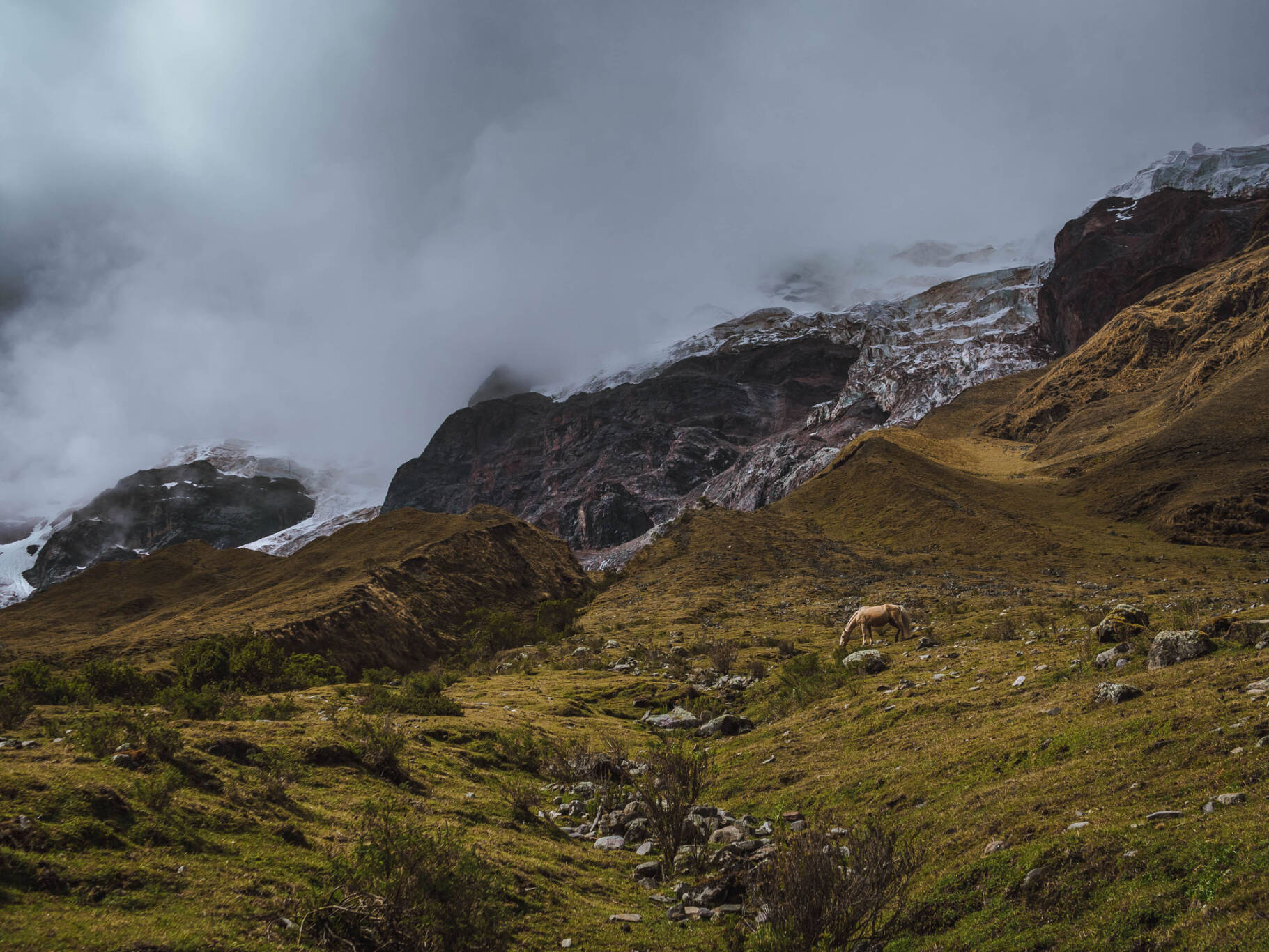This video UYWAY (the seed) shows the spiritual journey made by the quechua farmers bringing their cherished potato seeds from the Potato Park in Peru to Global Seed Vault in Svalbard in Norway, a fail-safe seed storage facility built deep inside a mountain on an arctic island.
The Andes is one of the regions in the world with an incredible biodiversity, a large number of plant and animal species unique to the region. In this setting, Andean people have based their economies on the complementary use of crops and resources since early times. A relationship of respect and harmony with Pacha Mama (Mother Earth), based on traditional principles of reciprocity, equilibrium and duality which form the pillars of Sumaq Kausay (The Good Life).
CLIMATE CHANGE
And the weather is changing. Global warming is creating dramatic impacts in the Andes. Science says that the glaciers of Peru have reduced by 22%, which means a 12% reduction in water for the arid coastal region. The loss of water due to melting of the glaciers is equivalent to the water consumed by Lima, the capital of Peru, in 10 years. The melting of glaciers also increases the risk of landslides and causes lakes to overflow. It has been forecast that there will be a 12% to 50% reduction in productivity.
Therefore, Parque de la Papa is supported by the IPCCA, the Indigenous Peoples’ Biocultural Climate Change Assessment Initiative. The organization sees that indigenous peoples living in the most biodiverse and fragile ecosystems of the planet are especially vulnerable to the impacts of climate change, due to their direct reliance on local, natural systems. They’re even extra vulnerable because of their disadvantaged socioeconomic standing caused by historical, and often ongoing, political, and social processes of discrimination.
The mission of the IPCCA is that ‘indigenous peoples have the power to respond to climate change challenges through indigenous frameworks and methodologies which respect and strengthen their resilience.’ Through bio cultural local assessments, the strengthening of local rights, and conversations between traditional knowledge and western science, they will build on and strengthen ‘The Good Life’.
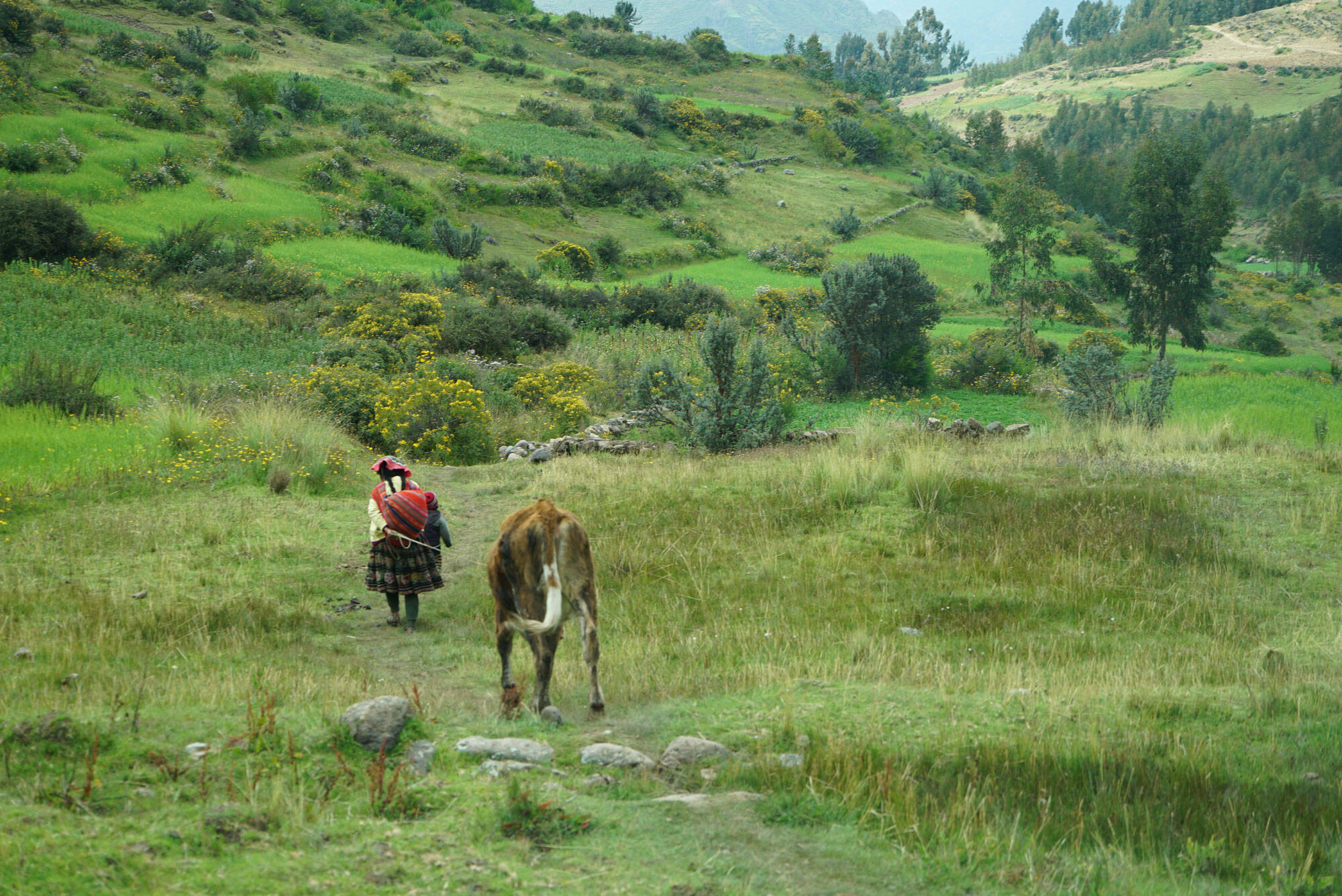
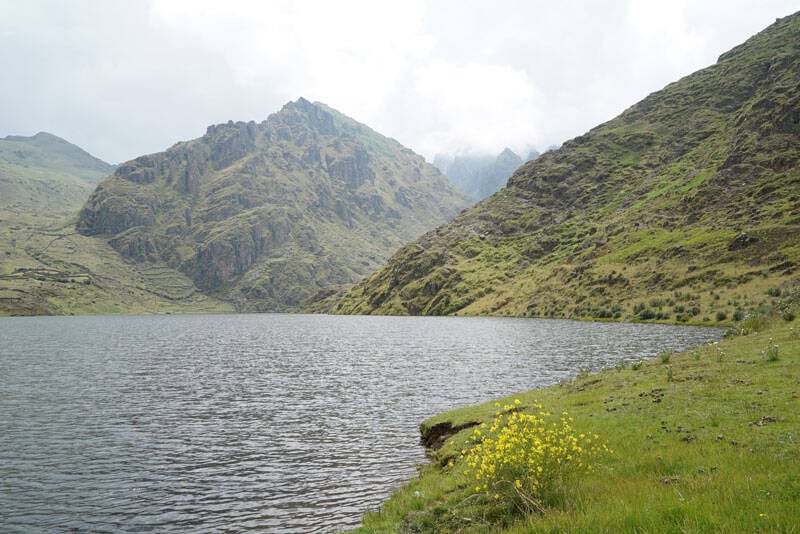
RECIPROCITY
Communal labor is the golden rule of the Andes, it is based on reciprocity. This rule obliges community members to work in their neighbors’ fields in much the same way as they expect them to work theirs during sowing or harvest time. In Potato Park, this principle has been raised to an even higher level, as six communities embrace more than 6.000 people. The harmony between people and land was an inspiring alternative model for the more developed parts of the world.
With communal labour the people of Potato Park secure a stable food supply based on potato diversity. By cultivating a variety of potatoes in small plots, farmers mitigate crop diseases that attack large plantations, thereby securing the survival of varieties that are more resistant to disease or bad weather.
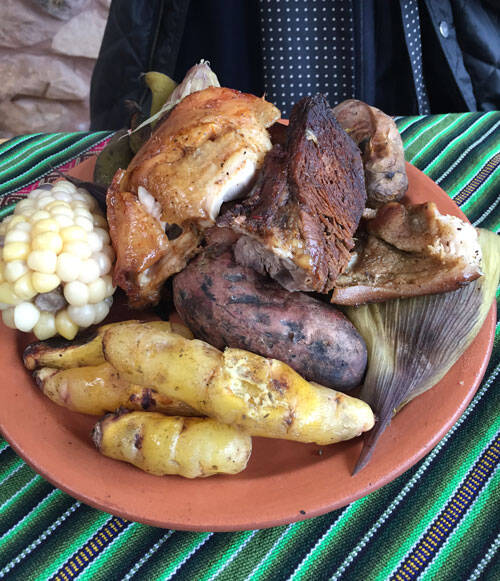
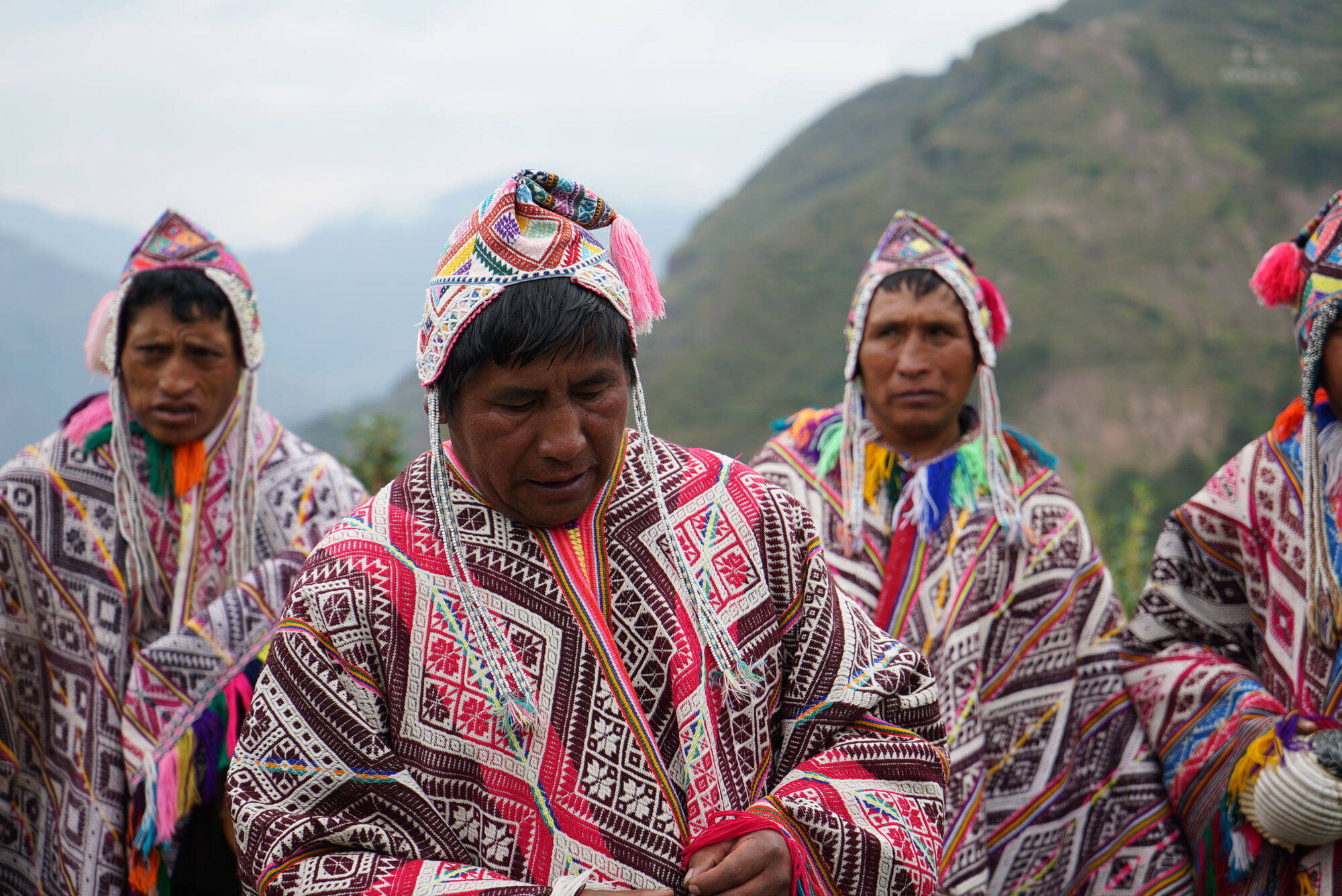
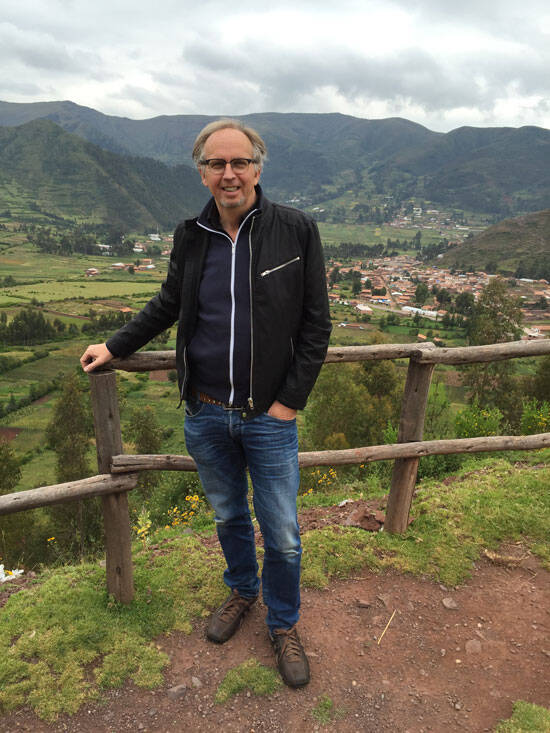
Of all the food travels in the world we had undertaken, this trip was one to remember. Indigenous Peruvian farmers shared their knowledge about different varieties of potatoes and how they use their land in a way that makes sense. Instead of exploiting mother Earth and maximizing harvest and profit, their community of farmers and families tried to live in harmony with nature and their neighbors. Sumaq Kausay, or as they call it: the good life.
Perhaps that's the reason why the unique ‘Parque de la Papa’ is situated on the high but still green mountains of the Andes. The Potato Park celebrates the rich biogenetic diversity of one of the five most popular crops in the world: almost 1.800 different species of potatoes were safely kept there in a beautiful landscape consisting of lakes and high mountain ecosystems. The area is a recognized center of origin of native potatoes, housing important domesticated and wild varieties.
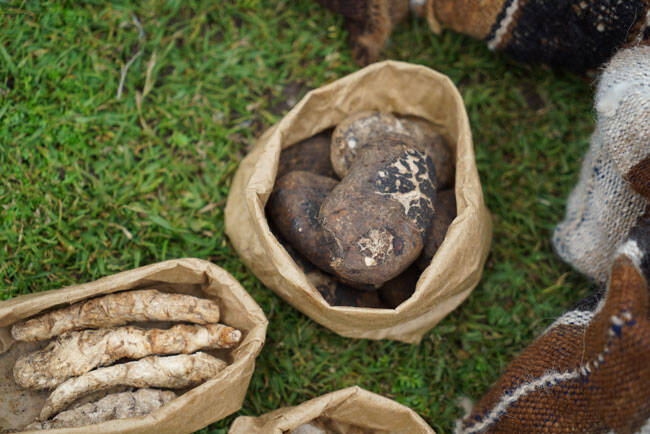

Hans Steenbergen Xiao Er Kong
How should we protect indigenous farmers from climate change and the economic dominance of industrial agriculture? Food Inspiration found an inspiring example in the mountains of Peru. At a height of almost 13.000 feet (almost 4 kilometers) local farmers are protecting the incredible diversity of the extraordinary potato, while being challenged by the effects of climate change and globalization.
travel

PERUVIAN PARQUE DE LA PAPA PROTECTS THE POTATO
17 min
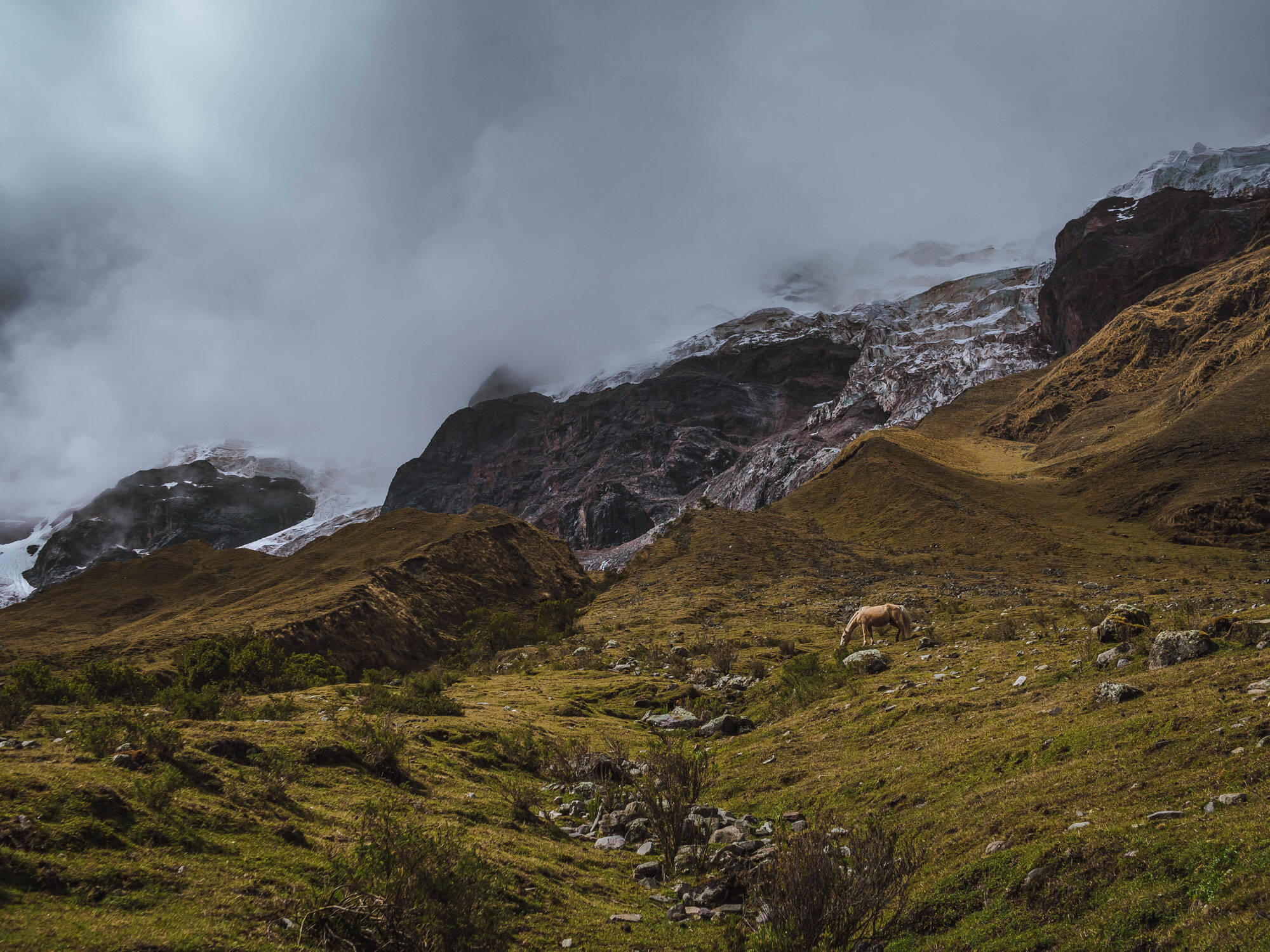
This video UYWAY (the seed) shows the spiritual journey made by the quechua farmers bringing their cherished potato seeds from the Potato Park in Peru to Global Seed Vault in Svalbard in Norway, a fail-safe seed storage facility built deep inside a mountain on an arctic island.
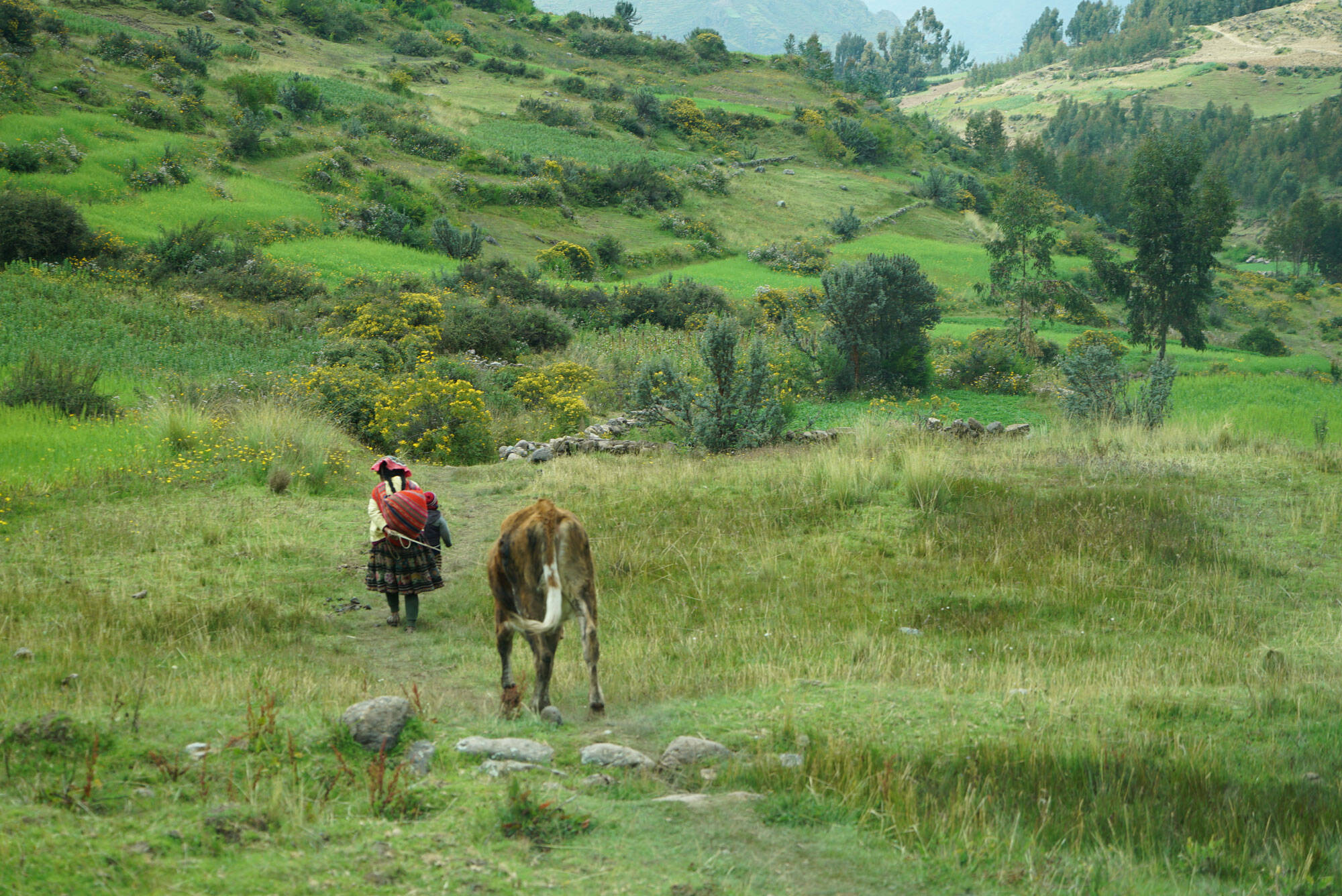
The Andes is one of the regions in the world with an incredible biodiversity, a large number of plant and animal species unique to the region. In this setting, Andean people have based their economies on the complementary use of crops and resources since early times. A relationship of respect and harmony with Pacha Mama (Mother Earth), based on traditional principles of reciprocity, equilibrium and duality which form the pillars of Sumaq Kausay (The Good Life).
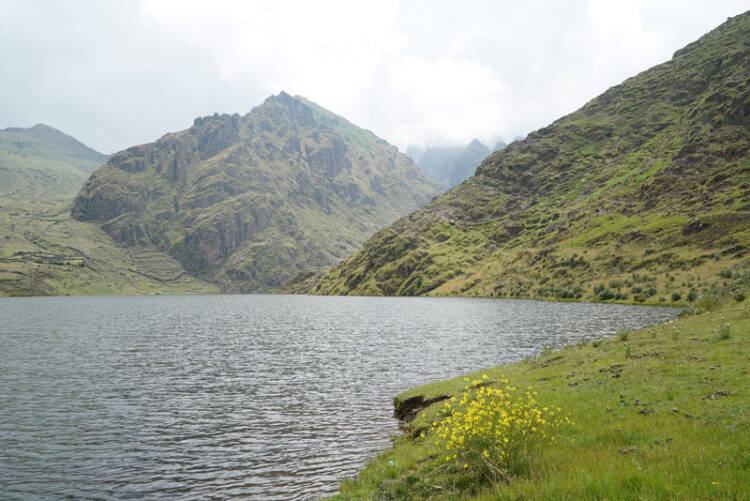
CLIMATE CHANGE
And the weather is changing. Global warming is creating dramatic impacts in the Andes. Science says that the glaciers of Peru have reduced by 22%, which means a 12% reduction in water for the arid coastal region. The loss of water due to melting of the glaciers is equivalent to the water consumed by Lima, the capital of Peru, in 10 years. The melting of glaciers also increases the risk of landslides and causes lakes to overflow. It has been forecast that there will be a 12% to 50% reduction in productivity.
Therefore, Parque de la Papa is supported by the IPCCA, the Indigenous Peoples’ Biocultural Climate Change Assessment Initiative. The organization sees that indigenous peoples living in the most biodiverse and fragile ecosystems of the planet are especially vulnerable to the impacts of climate change, due to their direct reliance on local, natural systems. They’re even extra vulnerable because of their disadvantaged socioeconomic standing caused by historical, and often ongoing, political, and social processes of discrimination.
The mission of the IPCCA is that ‘indigenous peoples have the power to respond to climate change challenges through indigenous frameworks and methodologies which respect and strengthen their resilience.’ Through bio cultural local assessments, the strengthening of local rights, and conversations between traditional knowledge and western science, they will build on and strengthen ‘The Good Life’.
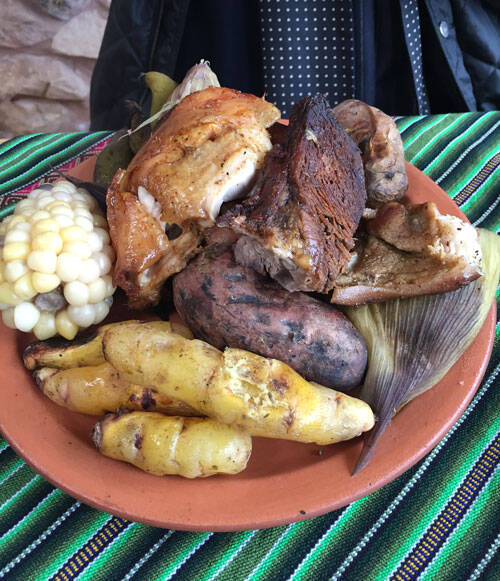
RECIPROCITY
Communal labor is the golden rule of the Andes, it is based on reciprocity. This rule obliges community members to work in their neighbors’ fields in much the same way as they expect them to work theirs during sowing or harvest time. In Potato Park, this principle has been raised to an even higher level, as six communities embrace more than 6.000 people. The harmony between people and land was an inspiring alternative model for the more developed parts of the world.
With communal labour the people of Potato Park secure a stable food supply based on potato diversity. By cultivating a variety of potatoes in small plots, farmers mitigate crop diseases that attack large plantations, thereby securing the survival of varieties that are more resistant to disease or bad weather.
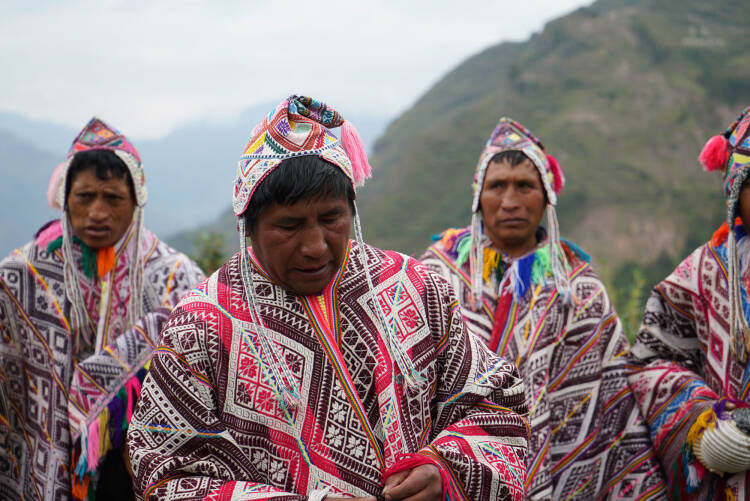
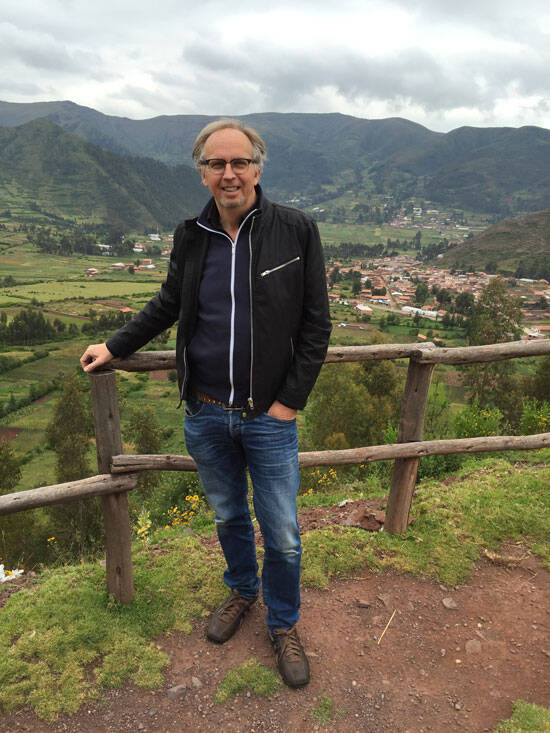
Of all the food travels in the world we had undertaken, this trip was one to remember. Indigenous Peruvian farmers shared their knowledge about different varieties of potatoes and how they use their land in a way that makes sense. Instead of exploiting mother Earth and maximizing harvest and profit, their community of farmers and families tried to live in harmony with nature and their neighbors. Sumaq Kausay, or as they call it: the good life.
Perhaps that's the reason why the unique ‘Parque de la Papa’ is situated on the high but still green mountains of the Andes. The Potato Park celebrates the rich biogenetic diversity of one of the five most popular crops in the world: almost 1.800 different species of potatoes were safely kept there in a beautiful landscape consisting of lakes and high mountain ecosystems. The area is a recognized center of origin of native potatoes, housing important domesticated and wild varieties.
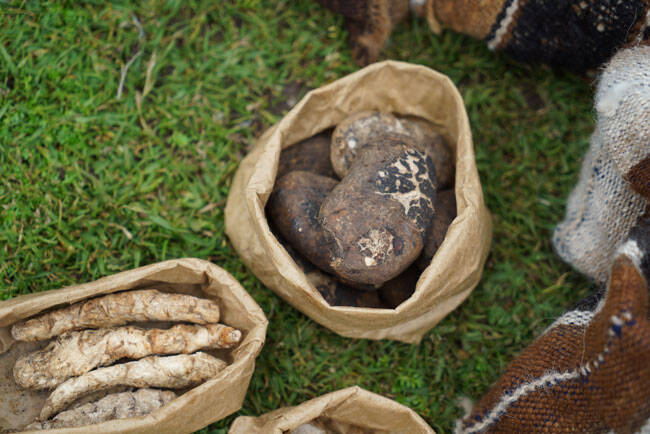

It was an inspiring moment when the farmers of the Andes showed the richness of their Peruvian potatoes. On a simple carpet on the ground, an incredible variety of potatoes – we had never seen or tasted before – were showcased.
Hans Steenbergen Xiao Er Kong
How should we protect indigenous farmers from climate change and the economic dominance of industrial agriculture? Food Inspiration found an inspiring example in the mountains of Peru. At a height of almost 13.000 feet (almost 4 kilometers) local farmers are protecting the incredible diversity of the extraordinary potato, while being challenged by the effects of climate change and globalization.
PERUVIAN PARQUE DE LA PAPA PROTECTS THE POTATO
The good life at 3.000 feet in the Andes
17 min
